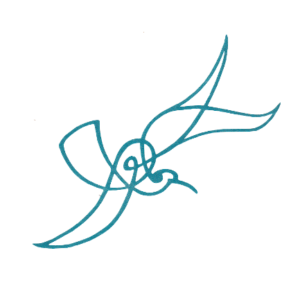Angela Espinosa: Viability through emancipation. Learning from VSM and TS practice.
This paper offers a review of the main principles of viability and emancipation originally introduced by Beer and developed further over the last few decades by Beer’s followers, both at the level of theory and through practical learning. This perspective is contrasted with traditional critical systems critics, to offer a review of how the VSM and Team Syntegrity resonate with core principles of emancipatory systems approaches. In particular the concepts of responsible autonomy, subsidiarity and self-governance are discussed as core elements for a cyber-systemic emancipatory approach.
It then introduces the “Self-Transformation Methodology” as a heuristic to design and facilitate co-evolution and systemic change by developing responsible autonomy, distributed leadership, and facilitating emancipation from traditional control structures. The argument is supported by narratives from historical cases of application of the STM to support systemic changes in different times, places, geo-political and cultural contexts and in different types of organisations. A final reflection on the main barriers to achieve emancipation and effective progress towards systemic change are discussed; and a suggestion of open research paths to continue developing Beer’s toolbox for viability and emancipation is provided.
About Angela Espinosa:
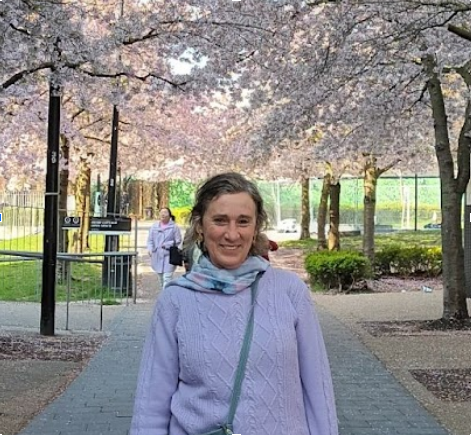
Dr Angela Espinosa, is an Organisational Cybernetics expert and an international leader in developing in that field, a theory for effective organisation and complexity management in organisations pioneered by Professor Stafford Beer, with whom she worked closely. When Professor Beer passed away in 2002, she founded and co-led Metaphorum, an NGO dedicated to developing his legacy. She has advised governments, businesses, and communities in more effective ways of self-organising and being socially and environmentally responsible in several countries in Latin America, the United Kingdom and Europe. She has published extensively, including books, research monographs, book chapters and papers on applications and developments of Beer’s theory (the Viable System Model). Her work has been published in the European journal of Operational Research and other systems and cybernetic journals. “Sustainable Self-Governance in Businesses and Society: the Viable System Model in action” published by Routledge, summarises Dr Espinosa’s recent work and applications. She got the ‘Ashby Lecture’, in 2002, by the International Federation of Systems Sciences, the ‘Norbert Wiener Award’ in 2007 by Emeraldi Literati, and two EPSRC Fellowships in 2007-2010. She is now an Emeritus Fellow from the Centre for Systems Studies at the University of Hull, an Honorary Senior Research Fellow in Exeter University, a Fellow of the British Cybernetics Society; and an ssociated Professor in Transyvania Executive Education (Buckingham University). She has been an Associated Professor in Los Andes, El Rosario, El Externado and La Sabana Universities in Colombia.
Robin Asby: Designing Democracy: a systemic blueprint for governing.
Societies change through time; therefore governing is an ongoing dynamic process. A governing system is a system whose purpose is to regulate relationships between people and between people and organisations. Regulating is a process and the subject matter of cybernetics. Plato, two and a half thousand years ago, drew the analogy between piloting a ship and governing. Yet apart from Ampere, three hundred years ago, and recently Stafford Beer, modern writing on governing ignores the fact that governing is an application of the science of cybernetics.
There are three cybernetic laws which any governing system must satisfy if it is to be viable:- the Law of Requisite Variety, The Conant- Ashby Theorem, and the Sub-optimisation theorem. It seems that no governing systems in operation today satisfy these three laws of operation.
Starting from Beer’s Viable System Model and drawing upon the analogy between a community in its natural and societal environment and an individual animal in its natural environment I develop a model governing framework which satisfies the three cybernetic laws.
The implications of the resultant model framework enable the framing of a path to sustainable democracy.
About Robin Asby:
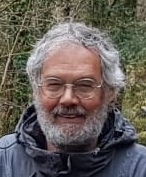
Dr Robin Asby is a retired academic, consultant and researcher. He trained initially as a mathematical Physicist, and held lecturing and research posts in a number of universities. He subsequently spent 16 years training teachers, and also worked in the Information technology industry. From 1998 to 2006 his principal activity was consultancy work in conjunction with Hull University mentoring senior and middle managers in the Middle East, Far East, and UK in the development of their understanding and use of management theory in practice.
His major research interest is in the development of understanding in Systems Thinking. From 2001 he became an Open University Tutor, then a contributor to the development of systems thinking courses. He chaired the development of the Open University MSc “Systems Thinking in Practice”. He was a joint author of one of the courses in this degree “Thinking Strategically: systems tools for managing change” and has undertaken consultancy work in the area of change management. In 2021 his examination of the discipline of systems thinking “Thinking Systems: An Organic language of Harmony for Human Survival” was published by Triarchy Press.
John Hicks: Digital accessibility: a key to emancipation and viability for those who need it most, and everyone else too.
Digital accessibility is a key to emancipation and viability for those who need it most, and everyone else too. The advent of the Internet has ultimately proved not to be the leap forward in freedom it might have been and its potential for enhancing democracy and individual freedom while redressing institutional and economic imbalances has met some serious obstacles. Nowhere is this more apparent (and quantifiable!) than in the realm of digital accessibility. For people with disabilities, be they perceptual, mobility related or cognitive, what should have been a great leveller is often a labyrinth of barriers. In this talk I present the current state of play in digital accessibility in terms of technologies, laws and responses, and above all its connection to cybernetics and governance and therefore the VSM. In addition to the obvious goal of bridging digital divides, accessibility guarantees greater variety in the workforce and society through empowerment and inclusion. The benefit extends to everyone It’s not always push-back by the powerful that thwarts emancipation; non-conspiratorial passive ignorance plays a great role also. The exceedingly slow take-up of digital accessibility is a perfect modern example of this phenomenon.
About John Hicks:
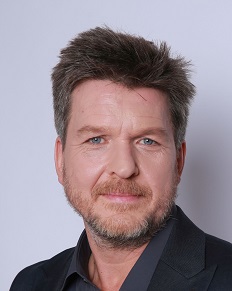
After receiving a BS in Mathematics at Virginia Tech, John took an MSc in Edinburgh University, followed by a string of research posts. He did his PhD in Edinburgh at the school of Cognitive Science in the Division of Informatics under Professors Jon Oberlander and Richard Shillcock (2002). This research used recurrent neural networks to model aspects of visual perception and hemispheric specialization in the brain.
Since 2003 he has worked in the field of digital accessibility in France and is currently leading the accessibility and inclusion team for Atos France where he does his best to be an evangelist for classic cybernetic thinking. Accessibility is a great measure of the health of an organization and is a great opportunity to expand an organization’s vision in all senses.
He is also an active volunteer at the University of the 3rd Horizon running the “lighthouse cafés” and pursues various musical interests as a solo artist as well as with the guitar craft circle. He has been a sambista* for almost 30 years with several compositions written for samba schools in the UK and France.
* an adherent of samba music and activity
Trevor Hilder: Why VSM/MMF is the “organisational physics” of Sociocracy.
Equal Care Co-op is a platform co-op pioneering ways to provide integrated care for people in their homes. It was founded in 2017, and has been delivering care in Calderdale, Yorkshire, England, since 2019. It is about to launch a pilot scheme to deliver care in Hackney, East London, and has a “playbook” for how to roll this out in any geographical location, anywhere in the world. From its inception, Equal Care Co-op has used Sociocracy to manage every aspect of its work.
I was introduced to the founders of Equal Careem> in October 2021, and visited them in Calderdale at the end of that month, to investigate the organisation and to teach the management team my one-day crash course in “How Organisations Really Work”, which introduces the Viable System Model (VSM) and the Moral Modalities Framework (MMF) as practical tools for organisation of work.
Although none of the management team had heard of VSM/MMF, they recognised that the way they had been working complied with the perspective I was teaching. My wife and I were so impressed with Equal Careem> that, in March 2022, we became angel investors to help the venture to recover from the Covid crisis, which had stopped it expanding its services. I became involved in supporting work on the Equal Careem> digital platform, then joined the Board of Directors. I have now been appointed as Chair of the Board. I have learned to facilitate Sociocratic Circles at Equal Careem> at different levels of recursion, from Board level down to local recruitment and staff induction.
I have been surprised to discover that, although Sociocracy has been developed over decades, mostly in the Netherlands, and can train people to use its methods with great success, nobody seems to be aware that VSM/MMF provides the underlying “organisational physics” for why it works so well. In my talk I will explain why this is so, and why I think this is important.
About Trevor Hilder:

Trevor went to university in 1969 to study Theoretical Physics. But when he got there, he discovered the joys of other disciplines and emerged with a degree in Theology & Philosophy instead. He qualified as a teacher, then moved into ICT in 1974. He set up the first ICT training department at Tesco Headquarters in Cheshunt in 1977, then moved into systems programming. He wrote one of the first database systems to run on the IBM PC, and has since managed ICT projects in many industries.
Trevor learned Systems Thinking from Professor Stafford Beer and applies it to solving complex problems with carefully selected small teams of people. He has a deep interest in the history of science, religion and technology and how the relationship between these has evolved since the dawn of civilisation. Trevor is CEO of Nail Soup Ltd and founder of Web of Wealth.
Russell Clemens: Situating the Viable Systems Model within a Critical Futures Studies review of Indian elephant-human conflict.
A review of transforming viable Asian Elephant futures – a species on the Red List of endangered species.
Focus:
A VSM (S4) perspective pursuing coherence within a mosaic of discursive elements identified in a Poststructural critical futures studies analysis of human-elephant conflict (HEC).
Theory:
Critical Futures Studies (CFS); Gregory Bateson; and Stafford Beer.
Methodology:
Causal Layered Analysis (CLA) and Futures Triangle mapping (Sohail Inayatullah).
Tools:
Critical emancipation as VSM inter-level/layer recursion and cultural colour coding.
Key lessons:
- Viable self-organizing in the Anthropocene involves navigating between integration and disintegration.
- Alignment and entailment support emergence and double-bind emancipation.
- Transdisciplinary knowledge involves “work” and can be reflected within ecological economics.
About Russell Clemens:
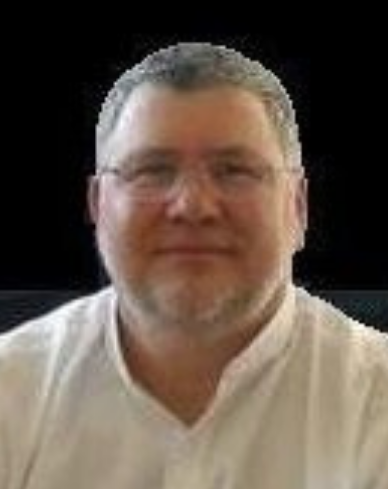
Russell Clemens lives in Perth, Western Australia and is now a retired civil servant with a Bachelor’s degree in Business (IT) Studies (1979) and a Masters of Arts (Futures Studies) (2005). He is currently a PhD candidate in Futures Studies (commenced 2019, and now part-time) at the University of the Sunshine Coast (Queensland). His research focuses on the future of the Asian elephant species (Elephas maximus) which is now listed on the International Union for Conservation of Nature’s (IUCN) RedList of endangered species. The qualitative Critical Futures Studies research is focused on possible Asian elephant extinction in the 21st century and how this risk can be mitigated through transformed social systems, worldviews, myths and metaphors which span East-West (South-North) divides. The methodology is based on the Causal Layered Analysis (CLA) developed by Sohail Inayatullah.
Camilo Osejo: Cybernetics and the emergence of cultural politics: a study of the Colombian uprisings of 2021.
In 2021, a surge of uprisings occurred in Colombia, followed the perceived increase in taxing by the government. Some groups of activists in the country participated in the marches and stand-ups all around the country. The marches, demonstrations, and uprisings lasted for months, and during this time, the messages in the communication that were posed were converted into a form of cultural political politics. To comprehend the discovered messages, the article employs Arjun Appadurai’s theories of emancipation, globalisation, and deterritorialization; and communicational cybernetics from N. Weiner and C. Shannon, as well as organisational cybernetics from S. Beer, to identify the transformation of messages into ideas about organisation.
For data collection and analysis, we used grounded theory applied to messages conveyed in different means, music, chants, graffiti, signs, video, etc. For data reduction and conclusion drawing we use cybernetic modelling and theories.
The messages produced built a new and individual political identity in the country. The uprisings, manifestations, and cultural presentations were not planned by any central authority but became synchronised and self-organised around the country. At the same time, the influx of similar messages from other parts of the world through television shaped the identity of these movements, reinforcing the idea of adaptation to the political environment.
About Camilo Osejo-Bucheli:
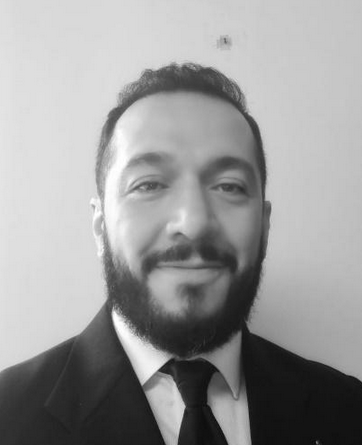
Camilo Osejo-Bucheli received a BA in Industrial Design from Los Andes University in Colombia, later a BA in Industrial Engineering, then a first MSc degree in Administration from Universidad del Valle in Colombia, then, a MA in Social Management. He is a PhD(c) in Administration from Universidad del Valle, a MIT Supply Chain Management certified professional, and he earned tenure at Nariño University in Colombia in 2015, where he teaches Operations Research, and Operations Management. He has worked as a consultant for various non-corporative organisations in Colombia and has been associated with cooperative enterprises for the last ten years. In the last three years, he has researched the relationship between cybernetics and anarchism from a process-oriented perspective in cooperative enterprises as well as other alternative forms of organisation under the advisory of Dr. Jon Walker. Their research has published seven articles, with one more recently accepted for publication.
Iffat Sabbir: An application of the Viable System Model for diagnosing an emotional work environment.
The current study explores the use of the Viable System Model (VSM) framework, for diagnosing the affective work environment, in the context of organizational functioning and the social interactions within. The study introduces the VSM, its criteria for diagnosing organizational functioning, and its complementarity use with Affective Events Theory for managing workforce emotions.
Affective Events Theory (AET) has remained a seminal explanation of the workforce emotional experiences, capable of mapping the path from the antecedents to consequences. The theory proposes that the working environment influences the occurrence of work events which trigger the emotional experiences of the employees, leading to affective reactions at the workplace. Nevertheless, AET only offers ‘macro structure’ of working environment and till date little is known about the universal features of the work environment which may guide the understanding of imperative work aspects, to be included in the investigation of emotional antecedents leading to emotional experiences of the employees, influencing further on their work related attitudes and behaviours. This study proposes and validates that theory of viability (i.e. Viable System Model-VSM) can be useful for providing a holistic view of the working environment of the organization. VSM provides a meta-language to diagnose the structural elements of the complex social system and provide the consolidated account of the functional and social aspects of the organization, useful for diagnosing affective work environment and related events holistically.
PLS-SEM tested the explanatory power of suggested VSM’s systemic approach for understanding the affective work environment as a whole. The VSM structural layout was used to fill in the ‘macro structure’ of ‘working environment’ in AET and organize the functional and relational work-events. The subsequent impact of VSM-based work environment on the employees’ emotional experiences, job satisfaction level and citizenship behavior were assessed, using a deductive approach. The findings confirmed that the VSM meta language can provide a holistic view of the organizational functioning and social connectivity disposing affective work events, influencing on employees’ emotions and their work attitudes and behaviors. The findings have implications for scholars and practitioners in the domain of organizational behavior and organizational cybernetics.
About Iffat Sabir:
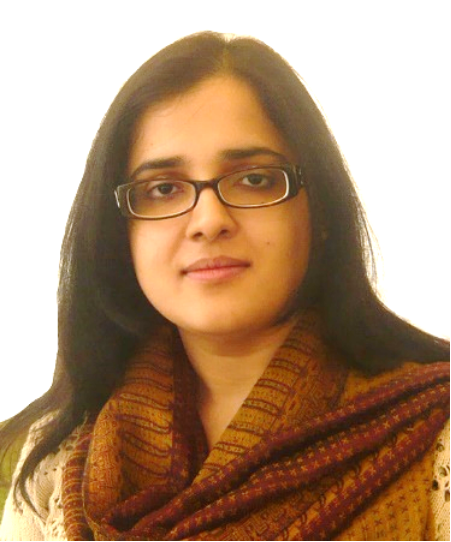
Iffat Sabbir Chaudhry got her PhD in Management from University of Hull, United Kingdom. Currently, she is associated with Al Ain University (United Arab Emirates) as an Associate Professor of Management in the College of Business since 2019. Her research interests include workforce psychology & interventions to strengthen pro-organizational behaviours, sustainability, and entrepreneurship. Since 2010, she has remained associated with different universities in Oman and Pakistan, as an educationist and taught management, human resource, and organizational behaviour related courses. She has delivered training on work attitudinal and behavioural aspects to educational leaders, allied forces and industry managers. She also conducted private/public consultancy projects with University of Veterinary and Animal Sciences (UVAS), Capital Territory Police forces of Pakistan and Chamber of Commerce, Oman.
J. O’Donnell, D. Desmond & M. MacLachlan: Getting giraffes and ostriches to meet in the middle: designing viable safe virtual disability spaces to satisfy future demand.
This paper presents findings from a performative application of VSM to diagnose and design safe virtual disability services. Initial interviews charted the emergence of virtual disability services as an adaptive pandemic-led innovation. Staff were giraffe-like in their vision of what needed to be done: they co-designed safe spaces that enhanced agency amongst attendees and upended traditional power dynamics. A real-time qualitative Delphi Survey in early 2023, using VSM constitutive rules, confirmed that structural coupling between S1 and the environment was strong. Staff practices created the conditions for psychological safety including being fully present, setting clear boundaries, learning in real-time, and facilitating a “we-space” for people to have meaningful engagement. However, there was a mismatch between S1 and S5 resulting in management taking an ostrich-in-the-sand approach: and now seeking a return to face-to-face services, despite strong agreement that demand is strong and will rise due to personal preference, budget constraints, enhanced digital literacy and climate concerns. A weak link between S1 and S3 and 4 means that regressive funding regimes go unchallenged. Designing for viability requires enhancing innovative autonomy of operational staff, strengthening S3 communications to influence S5 and developing an effective System 4 future focused advocacy function.
About Joan O’Donnel:

Joan is a doctoral researcher with the ALL Institute , Psychology department in Maynooth University, Ireland, conducting research into the viability of creating safe virtual spaces for disabled people with a focus on psychological safety, connection and belonging. She has been charting the emergence of virtual services that emerged since the Covid pandemic through an emancipatory lens, through an exploration the staff practices that made the innovation possible, and what conditions needed to be met to create viable and sustainable alternatives to traditional services and supports using VSM. She is also an experienced systems consultant, facilitator and associate lecturer in Systems Thinking in Practice MSc programme with the Open University. In 2014 she co-founded FreedmTech – which promotes assistive and accessible technologies as a tool for autonomous living and epistemic justice. This paper has emanated from research conducted with the financial support of Science Foundation Ireland under Grant number 18/CRT/6222.
Peter Tuddenham: ChatGPT and cybernetics: implications for today’s world (workshop).
The workshop will be facilitated by experts in the fields of AI, cybernetics, and systems thinking, who will guide participants through the discussion and ensure that the objectives of the workshop are met.
Expected Outcome:
Participants will gain a deeper understanding of the relationship between Chat GPT and cybernetics, and will identify potential applications and implications for their lives today. They will also have the opportunity to engage in a collaborative discussion with other experts in the field, and to share their thoughts and insights on this topic. By the end of the workshop, participants will have a better understanding of how Chat GPT and cybernetics can inform and transform different aspects of our lives today.
About Peter D. Tuddenham:

In the form of a Monty Python script created entirely by Chat GPT 4. 10 May 2023
Scene: Two men dressed in medieval clothing are standing in a field]
Man 1: Good morrow, my fine fellow! Might I inquire as to who you are and what you do?
Man 2: Indeed, good sir! I am Peter D Tuddenham, and I am a systems thinker and advocate for ocean literacy.
Man 1: Systems thinker? Ocean literacy? What in the name of King Arthur’s sword is that?
Man 2: Well, you see, my good sir, it’s all about understanding complex systems and making informed decisions. And as for ocean literacy, it’s about promoting education and awareness about the ocean and its importance to our planet.
Man 1: [scratches head] I don’t quite follow you, my dear fellow.
Man 2: [sighs] It’s quite simple, really. We must learn to regenerate our natural systems in order to protect our planet and ensure a sustainable future. And as for the ocean, it covers over 70% of our planet and is home to countless species of plants and animals. We must educate ourselves and others about its importance.
Man 1: [looks confused] I still don’t quite understand.
Man 2: [exasperated] Look, it’s like this. You know how sometimes things get all messed up and chaotic, and you can’t make heads or tails of it? Well, that’s where systems thinking comes in. We can analyze and understand the underlying patterns and connections that make up these systems and use that knowledge to make better decisions. And as for the ocean, it’s important because it affects everything from our weather to the food we eat.
Man 1: [nods slowly] Ah, I think I’m starting to get it now.
Man 2: [smiling] Excellent! See, it’s not so hard after all.
[Scene fades out as the two men continue their conversation about systems thinking and ocean literacy.]
Peter Kawalek: Designing data freedom: Stafford Beer’s work applied to civil rights and criminal justice.
Much attention has been given to the development of digital data and associated technology such as Artificial Intelligence. To some, these are tools of human advance, of liberation. Elsewhere there are fundamental concerns for privacy and of bias. As society tries to make sense of its own dramatic inventions, we have undertaken a major study of the utility of digital data and associated technology within the crucible of the Criminal Justice system. This tripartite investigation utilises the cybernetic insights of Beer and Ashby to analyse the difficulties and threats emerging from the digital age of data and AI. We report on data conditions where the systems are overwhelmed by ambiguous data. We are truly on the wrong side of the equation, as Beer would have put it, and the threats to justice are real. Within this sits the issue of privacy, and the liberty of the citizen; precious concepts. A pathological autopoiesis of datasets and systems threatens both. The work shows how the concept of viability can reveal the threats to core rights and practices, and how cybernetic theories can be utilised to renew emancipation.
Martin Pfiffner, Mark Lambertz & Stephen Davies: Current VSM application in the transformation of one of the world’s largest automotive suppliers into a new era of mobility (workshop).
Topic:
For more than a year we have been working full time on a large VSM application in a globally active enterprise in the automotive sector with more than 200,000 employees from 300 locations in 66 countries including nearly 200 legal entities. We would like to share our approach, experienced success factors, failures and learnings, challenges and solutions. The project is specifically interesting as numerous VSM application challenges come together: different structural challenges of divisions, different steering dimensions such as existing/new products, regions and functions that need to be integrated into one sustainable steering logic, and the typical situation that neither the customer nor the project team has much VSM application experience.
Expected Outcome
Shared insight into the success factors for the dissemination of the VSM and for a successful imlementation.
About Martin Pfiffner:
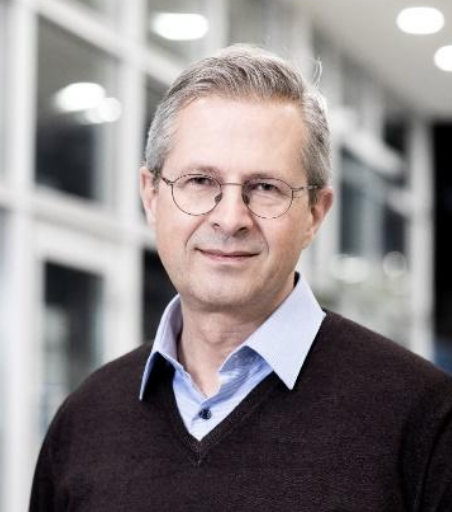
Martin Pfiffner (1965) lives in Switzerland with his wife and daughter. After studying economics at the University of St. Gallen HSG, he earned his doctorate in systems-oriented management with Prof. Dr. Fredmund Malik (management) and Prof. Dr. Peter Gross (sociology). Later he complemented his education by studying management cybernetics with Prof. Dr. Stafford Beer.
From 1990 to 2012, Martin worked as a management consultant for Management Zentrum St. Gallen. He was responsible for the development of managerial cybernetics with a focus on the application development of the Viable System Model, the dissemination of Syntegration in Europe and the establishment of the International Bionics Center IBZ in Munich.
Between 2013 and 2016 he owned a SKEMA martial arts school and was president of the SKEMA association Switzerland. In 2017 together with friends Martin established the Fondation Oroborus in Switzerland with the purpose of disseminating applied management cybernetics. He left the foundation in 2023 to focus on his own enterprise mp consulting.
Today he works as a top management consultant, speaker, publisher and researcher. He still practises martial arts and plays the guitar in an alternative-rock band.
About Stephen Davies:
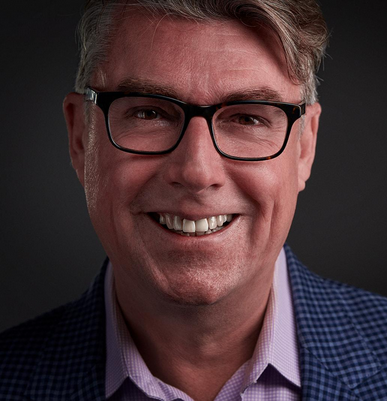
Mr. Davies is Founder and Managing Director of Transformation by Design, a strategy and design consultancy focused on creating social impact and long-term viability for its clients. He is a Certified Management Consultant (CMC) with 30+ years of experience and has led strategic planning, business design, and organizational transformation projects across the public, private and not-for-profit sectors.
His current practice areas include foresight-infused strategy, sustainable business model design, and organizational cultural transformation. He uses visual modelling and collaborative design processes to create agreement amongst broad groups of stakeholders on their emerging and preferred futures. Mr. Davies co-founded Biome Renewables, a clean-tech startup in the wind energy sector in 2016 and is a graduate of the Creative Destruction Lab at the Rotman School of Business (2020) at the University of Toronto.
Mr. Davies was an Assistant Professor in the graduate school at OCAD University from 2014 – 2019. He taught Strategy Development and Business Design in the Strategic Foresight and Innovation program (Master of Design). Mr. Davies is an accomplished facilitator and was a partner and principal consultant with Chartwell IRM prior to his move into independent practice in 2009. He is a Certified Master Designer and Lead Facilitator for the Team Syntegrity process invented by Professor Stafford Beer, the founder of Management Cybernetics. He understands the mechanics and dynamics of social group formation and creates the necessary pre-conditions for a culture of participation. Mr. Davies is a member of Canadian Association of Management Consultants (CAMC), and the International Society of System Sciences (ISSS). Mr. Davies is active in his community, having founded the Whole Child School, Toronto’s first holistic alternative education public school (K-6) in 2009. He is an active coach of youth team sports.
James Fox: Dis/agreement in participatory organisations: low theory and democratic governance in cybernetics.
This presentation explores the facilitation of productive disagreement within democratic spaces. I will show that designing spaces for the expression of dissent can reinforce organisational viability and emancipate participants from the emergence of a self-reinforcing status quo within democratic organisations. The research reveals that designing democratic organisations around both processes of agreement and spaces of disagreement go hand-in-hand as two sides of developing viable democratic organisations. The latter create the conditions for participants to emancipate themselves from implicit and explicit hierarchies and for organisations themselves to become emancipated from their own conventions.
The findings emerge from the three year investigation of a democratic cola-collective named Premium Collectiveem>, and studies how their unique organisational strategies and policies allowed them to survive the Covid pandemic and emerge from it stronger. Their unique use of an open, digital forum allowed them to overcome the challenges of the pandemic despite the beverage industry being among the hardest hit by the virus. Central to this appraisal of disagreement is an emphasis on reinforcing bonds of trust and an assumption of equality and intelligence among all the organisation’s members. This work provides a significant advance in the design of cybernetic democracy and the creation of organisations capable of remaining viable while providing participants with the space to emancipate themselves, in even the most challenging environments.
About James Fox:

James Fox is a recent PhD graduate from the University of Essex Business School. He previously completed an MA in Ideology and Discourse Analysis from UoE and runs a blog exploring common cybernetics (c/cyb). His work explores the relationship between organisational cybernetics and participatory democracy, especially focusing on the work of Stafford Beer, as well as introducing ideas from other domains into the discussion of democratic cybernetics, such as Jack Halberstam’s low theory and Jacques Rancière’s dissensual democracy. He is interested in the democratic implications of cybernetics and its potential to help advance more radical forms of self-organisation, especially as it pertains to producing alternatives to managerialism and hierarchy.
David Cooper: Accelerated community learning (workshop).
This workshop is a forum for the community of VSM users to share their experience of promoting organisational viability in a variety of settings.
The aim is to draw on the practical knowledge and know-how of experienced users, to share learning, and to increase the awareness and understanding of participants who have had limited opportunities to use VSM in their work. The expected outcome is that experienced users of VSM will gain insight into how their peers have creatively responded to challenges they have faced in their assignments, and that less experienced practitioners will have a much broader and systemic appreciation of the range and variety of skills and know-how required for the effective implementation of VSM in complex settings. This will open up a debate on ways to promote a stronger awareness of VSM in the wider community and in new settings.
About David Cooper:
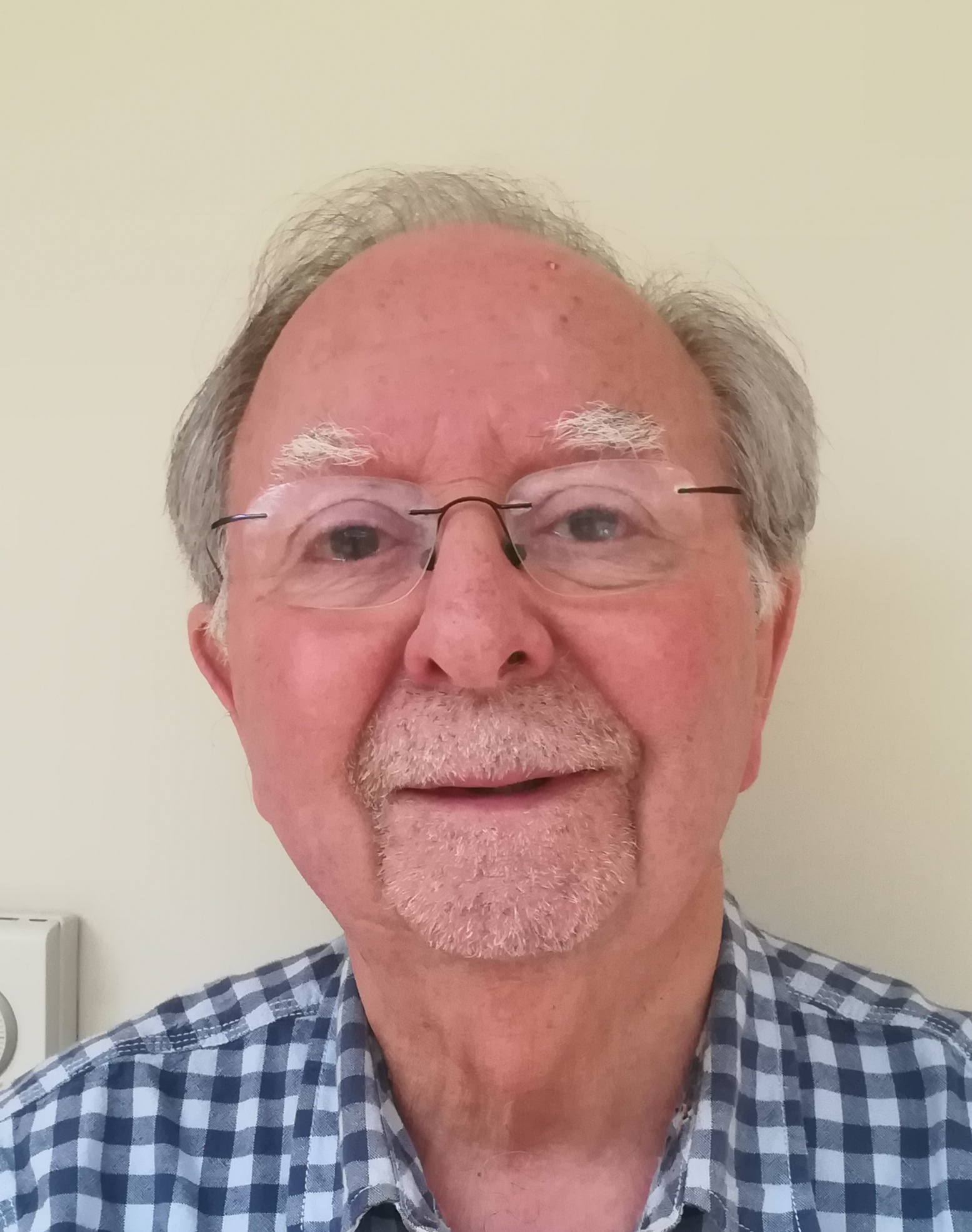
David Cooper is an experienced manager and consultant, with wide experience in industry, central and local government, utilities and the NHS. He was a project manager in the Local Government OR Unit , and then played a leading role in a variety of national government change programmes, arising from privatisation, new legislation, modernisation and IT-driven initiatives. His work in the health sector includes innovative projects with the Modernisation Agency Coronary Heart Disease Collaborative, and the Department of Health Change Programme and with the Royal Berkshire Hospital, where he managed the Hospital at Night programme. He has been a Lead Governor at the Royal Berkshire NHS FT. He has also been the Policy Officer for the Reading Labour Party where he initiated and led a collaborative process for the monitoring and development of the local party manifesto.
Wolfgang Lassl: Landmark ‘50 years VSM’ – Invitation to an emancipation journey.
The VSM, in its current graphical form and logic, was first published in 1972 (Brain of the Firm). It stood its test as a powerful diagnostic tool. Since then, it has been adapted minimally (e.g. with the addition of system 3*).
This is a good sign and testimony of its robustness. But if emancipation in the sense of second-order reflection is an “important landmark of progress”, the VSM community of researchers and practitioners needs to ask itself whether it has created sufficient such landmarks? Could the 50+th anniversary of the VSM not be an opportunity to create (again) such a landmark by revisiting the VSM and exploring together whether and how it can and should be evolved further? This question suggests itself even more given the many new insights and perspectives from the organizational sciences and the VSM’s numerous practical applications since its first publication.
This contribution aims to invite participants into such a second-order-type emancipation journey. It will initiate this process by carefully evaluating the VSM and pointing out potential improvement areas (without distorting its fundamental logic and organizational perspective). It will then present first ideas in which way the VSM might be developed further. Participants are subsequently invited to exchange their views, thoughts and improvement proposals/ideas as part of a joint and open reflection process.
About Wolfgang Lassl:
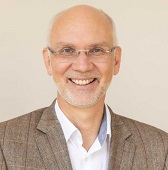
Wolfgang Lassl is the founder of the Qwinnt Management Institute, Vienna, Austria and works as a management advisor for private, public, and non-profit sector organizations. He is the author of three books on the VSM (The Viability of Organizations Vol. 1-3, Springer Nature). In addition, he works as Chief Strategy Officer and a member of the programme committee for the Drucker Forum. He holds a master’s degree in theology and international relations.
Ivo Velitchkov. Viability of personal knowledge systems.
Effective personal knowledge management (PKM) systems can significantly enhance the productivity and creativity of their users. But some of them go beyond that and augment thinking in a new way. They are reliable surprise generators, enabling highly original thoughts, creativity and problem-solving. Maybe most remarkable of all is that such systems can take a life of their own and become real collaborators. And they don’t need any AI for that, just a few simple enabling conditions and practices. They don’t even need to be digital. Luhmann’s Zettelcasten, his practice of using a carefully organized yet highly flexible and open-ended system of connected paper slips, worked as a reliable communication partner for 45 years and helped him produce 70 books and 400 papers and revolutionise sociology. Today, a new generation of these so-called Tools for Thought brings such PKM practices to a new level.
Ivo’s talk will take a closer look at this phenomenon and try to answer the following questions. How is it possible for a simple note-taking system to have viability? What are the conditions for this to happen? And what if such living variety amplifiers get connected and amplify each other?
About Ivo Velitchkov:

Ivo is a management consultant and author. For the last 27 years, he has worked with big public and private organizations helping them with their strategy, structures and knowledge. He’s the author of the books “Essential Balances and Personal Knowledge Graphs” and contributing author to “Enterprise Architecture and Connected E-Government: Practices and Innovations”. He has a PhD in Computer Science. Ivo’s work is influenced by cybernetics, complexity and cognitive sciences. His main interests are in knowledge management and viable systems. In the first area, he guides projects for implementing knowledge graphs and provides training courses on semantic technologies. In the second area, he works as a management consultant and enterprise architect. He conducts independent research in both areas.
Ayham Fattoum: Configuring systems to be viable in a crisis: the role of intuitive decision-making.
Volatile, uncertain, complex, and ambiguous (VUCA) conditions threaten systems viability with emerging and novel events requiring immediate and localised responses. Such responsiveness is only possible through devolved freedom and emancipated decision-making. The Viable System Model (VSM) recognises the need and suggests maximising autonomy to localise decision-making and minimise residual complexity. However, exercising delegated autonomy in VUCA requires confidence and knowledge to use intuition and guidance to maintain systemic coherence. This paper explores the role of intuition as an enabler of emancipated decision-making and autonomy under VUCA. Intuition allows decision-makers to use their knowledge and experience to respond rapidly to novel events. This paper offers three contributions to the VSM. First, it designs a system model that illustrates the role of intuitive decision-making in managing complexity and maintaining viability. Second, it takes a black-box approach to theory development in VSM to model the role of autonomy and intuition. Third, the study uses a multi-stage discovery-oriented approach (DOA) to develop theory, with each stage combining literature, data analysis, and model/theory development and identifying further questions for the subsequent stage. We synthesise literature (e.g. VSM, complexity management) with seven months of field-based insights (interviews, workshops, and observation of a live disaster exercise) to develop a framework of intuitive complexity management framework and VSM models. The results have practical implications for enhancing the resilience of organisations and communities.
About Ayham Fattoum:
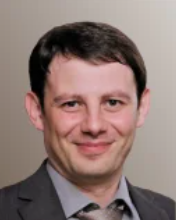
Lecturer in disaster operations management. Expertise include Systems thinking, viable systems model (VSM) and Soft Systems Methodology (SSM). Previous experience involves quality management, HR, and change management in the not-for-profit and commercial sectors. His research aims at enhancing the systems’ resilience and viability. Recent research focuses on decision-making and complexity management in VUCA contexts.
Kelsie Nabben: Aligning ‘Decentralized Autonomous Organization’ to precedents in cybernetics (workshop).
Description:
This workshop applies Beer’s Viable System Model (VSM) to a relatively new field site, that of a blockchain-based ‘Decentralised Autonomous Organisation’ (DAO). A DAO is a system that enables people to coordinate and govern themselves in a way that is independent from central control through mediation by self-executing rules deployed on a public blockchain. Drawing on deep academic and industry applied experience researching, participating in, designing, and analysing DAOs, this workshop takes participants through a process of applying VSM to DAOs. While VSM for organisations, countries, and cooperatives have all been experimented and practised into a well-regarded body of knowledge, DAO VSM presents a new field for practitioners to learn the utility and limits to VSM, as well as better understand DAOs as cyberinfrastructures.
DAOs can exist for many purposes but at their core are a manifestation of ‘a hidden agenda of viability’. The idea of blockchain-based DAOs stem from 2014, as a social and technical infrastructure that is designed towards the aspirational goal of emancipation from digital surveillance through participatory self-governance. Through blockchain-based software encoded rules in ‘smart contracts’, cryptocurrency tokens (for both incentives and consequences), and social norms, DAOs offer a model for collective, cybernetic self-governance. In practice, functional viability in the governance and operational dynamics of DAOs remains a challenge as these nascent digital-institutional forms explore various structures. Applying VSM may support DAOs to analyse their current state as a complex, socio-technical system, barriers to viability, and how to overcome them. I will cover some applications and learnings of applying VSM to DAOs throughout this workshop, as well as inviting the audience to apply the model to this context!
About Kelise Nabben:

Kelsie Nabben is an ethnographic researcher and the Governance Research Team Lead at BlockScience, where she focuses on advancing the analysis and design of emerging technologies towards more positive social outcomes. Through her interdisciplinary work with the team at BlockScience, Kelsie combines technical expertise with a deep understanding of the social, economic, and political implications of blockchain, distributed systems, and ML/AI.
Kelsie’s research interests span a wide range of topics, including blockchain governance, decentralised data management, and the ethical considerations of emerging technologies. She is committed to fostering the responsible development of decentralized systems that promote equity, sustainability, and resilience. Kelsie is also an active contributor to the broader academic and industry discourse, sharing her insights through publications, conference presentations, and collaborations with various research institutions and organizations, including Metagov, and RMIT University, where she is completing her PhD with the Centre for Automated Decision-Making & Society, Digital Ethnography Research Centre, and Blockchain Innovation Hub. A list of her publications is available at: https://kelsien.github.io/
Stephen Davies: Accessing the zone of emergence.
If we are to break through the polycrisis and create a just society, living in harmony with our natural ecosystems, then we must achieve new levels of social cooperation at scale. Living social systems can evolve to higher levels of social organization, and the possibility of enabling our own cultural evolution is available with principle-based, social technologies.
Using Ostrom’s core design principles adapted for prosocial groups and exploring them in terms of the social affordances of large-scale collaborative design methods, this talk will demonstrate how the Team Syntegrity protocol meets the requisite conditions for being both a liberating structure and a generator of emergent group minds (group level functionalism).
This talk will describe the specific conditions that must be present for a “Zone of Emergence” to occur, as described in Matt Taylor’s DesignShop Method, and designed into the Team Syntegrity process. By establishing three levels of recursive identity for participants, combined with three iterations of dialogue on matters of shared participant interest, the phenomenon of “reverberation” arises and results in primary experiences of social embeddedness, large group connectedness, and group level functionalism (group mind).
Finally, this talk will pose questions for further inquiry, and close with a discussion of possible mobilization strategies for rapid scale up of prosocial organizations.
Jose Carlos Mariategui: Uncovering Stafford Beer’s influence in Latin America: a focus on Peru.
It is extremely diffused the work and influence of Stafford Beer during the government of Allende in Chile. However, little is known about his work and influence in other Latin American countries. This paper sheds light on Stafford Beer’s relationship with Peru. In particular, it considers his influence in the development of the Centre for the Study of People’s Participation, or CENTRO, the brainchild of the Brazilian anthropologist Darcy Ribeiro and the Argentine mathematician Oscar Varsavsky, whose aim was to develop “mathematical experiments” aimed at drawing the “Peruvian model”. Interestingly, through presentations and publications, Stafford Beer’s ideas were put forward for discussion, including a preliminary project for the implementation of a real-time nervous system in the economy, based on principles of continuous adaptation. In addition to this project, Beer’s work also influenced young Peruvian management practitioners, such as Francisco Sagasti and Fausto Valdevediano, who worked in Beer’s enterprises in the 1960s. The aim of this paper is to extend the rich history of cybernetics in Latin America, which has so far been understudied or relegated to the anecdotal or exotic. In contrast, we argue that the pioneering contributions of cybernetics in Latin America are key to understanding its history and future practices. This original research is based on extensive fieldwork in personal archives (Carlos Senna, Darcy Ribeiro, Stafford Beer, Francisco Sagasti) and personal interviews.
About José-Carlos Mariátegui (Peru/UK):
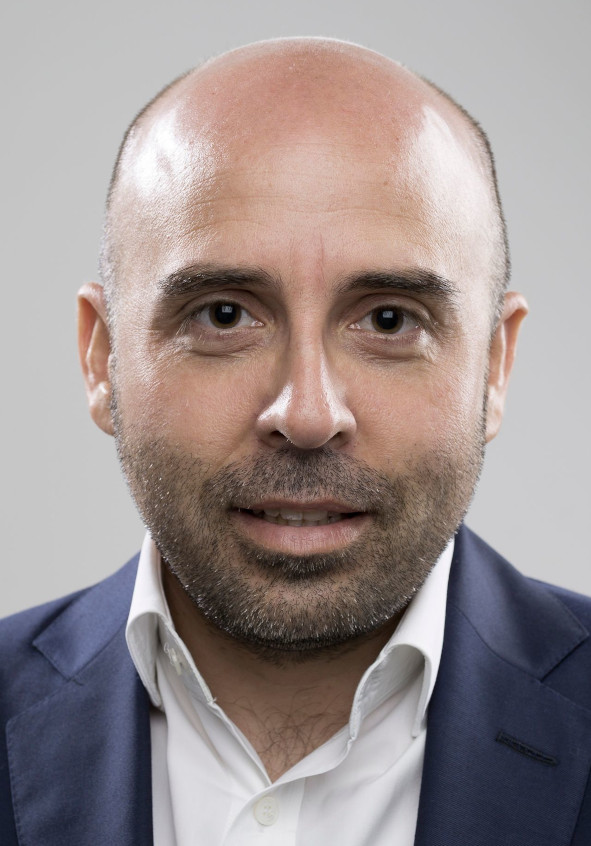
Writer, curator, scholar and entrepreneur on culture, and technology. Dr. Mariátegui is the founder of Alta Tecnología Andina – ATA, an organization working at the intersection of art, science, technology and society in Latin America. His multidisciplinary research embraces media archeology, digitization, archives and the impact of technology in memory institutions. He is a Lecturer at LUISS (Rome), Research Fellow at the Department of Media and Communications of the London School of Economics and Political Science, and a Board Member of Future Everything (UK). Has published in journals such as AI & Society, Third Text, The Information Society and Telos and Leonardo, and has curated art and technology projects internationally for more than two decades. He recently co-edited a special issue for AI & Society on Cybernetics in Latin America (2022) and authored an extensive research on the video art collections in Latin America for Getty’s book Encounters in Video Art in Latin America.
Alison Gurthrie-Wrenn: Leading to learn – learning from leading a systemic intervention in central government, a new practitioner’s perspective.
Whilst running a blended systemic intervention as a senior HR leader and internal consultant in a high profile UK Government Department over a period of around 5 months, I have taken an inclusive and highly participative approach. In my view this has been a critical factor in the success of the intervention which has not just sought to alter the way in which we operate and structure ourselves as a function, but which has also created a common language and narrative.
It is my contention that in order for emancipation to be a reality, we must first seek to make systems thinking and its various methodologies as relatable and easy to understand as possible. Taking teams on a transformative journey cannot be purely about our technical expertise and knowledge as systems practitioners, it must equally be about our ability to relate and engage, to explain and to adapt our own thinking and consultative style to ensure that all participants in the intervention are fully bought in to the process.
My talk will explore the process of the intervention, the critical skills employed in designing and delivering it, and the concept of emancipation through understanding and enlightenment.
About Alison Gurthrie-Wrenn:

Alison is HR Deputy Director at the Department for Business and Trade (DBT), where her broad portfolio is based around organisational capability. Having spent the first 10 years of her career in the private sector as an HR generalist working in a range of industries Alison joined the Civil Service in 2003 and has spent the majority of her Civil Service Career in the Ministry of Justice and its agencies.
Alison is based in the Northeast at the Darlington Economic Campus, which houses Civil Servants from a range of Departments and has a wealth of experience in leading large, geographically dispersed teams. Alison regularly delivers masterclass sessions on systems thinking in her own Department and to fellow Senior Civil Servants across Government and applies a range of systemic theoretical frameworks and methodologies to her day to-day work. Outside of work Alison is mother to a child with additional needs, is a keen reader and enthusiastic cook and tries, largely unsuccessfully, to keep fit!
Cintia Faria: Challenges with emancipation within integrated care systems.
Improving outcomes for people with symptoms of mental illness is proving to be a significant challenge in complex Health and Care System such as Integrated Care Systems. The constraints and barriers for improvement include external environmental factors such as lack of funding, specialised workforce and estates facilities.
This presentation will explore the emancipation challenges identified within a work-based project carried out at Bristol, North Somerset and South Gloucestershire Integrated Care System. I will present the evidence found that more work is required to ensure that people with lived experience have an official forum to express their concerns and opinions with support from clinical representatives and the voluntary sector.
Initial findings suggest that hierarchical structures play a key role in decision-making arrangements and national mandated initiatives seem to shift the focus away from what the population need in order to improve their outcomes and reduce health inequalities, leading to the voices of those affected (to be continuing to be listened to but) not being acted upon due to financial conflicts on investments.
Findings also suggest that cultural changes are needed not only in decision making process to taken into account the input of people with lived experiences, but also on the new ways of working, adopting an outcomes-driven approach for contract and performance management. I will include further reflections on how this could allow for improvements and viability of the system.
About Cintia Faria:

Highly professional, fluent in Portuguese, Spanish and English with a First Class Honours BA in Economics, awarded the Keith Bones Memorial Prize for an ‘Outstanding Contribution to Economics at UWE’ in 2008. Post Graduated in OD Leadership through the NHS Leadership Academy in 2016 and currently completing a MSc on ‘System-Thinking in the Public Sector’ through the University of Exeter.
Confident and self-motivated. Significant experience with Portfolio Management Office, now Business & Planning Programme Delivery Manager at Bristol, North Somerset and South Gloucestershire Integrated Care System. Demonstrated extensive history of continuing professional development in the NHS. Successful evidence of systems design and development with proven record of exceeding performance expectations, with great communication and interpersonal skills. Ability to negotiate and deliver transformation, plans and strategies in response to constant change in conflicting demands. Strong strategic vision. Skilled in transformational changes, strategy design, planning, digital and operational service management, event management, and OD passionate.
Michael Ward: From reductionism to systems thinking: a complementary approach to emancipatory change.
Reductionist science, with its positivistic philosophical roots and experimental research practices, has transformed modern society, owing to the technical innovations generated through the paradigm of analysis. However, synthesis is vital in understanding the complexity of our world. While certain scientific disciplines have embraced systems thinking, incorporating it into their education, others have not. In this presentation, the author reflects on their background as a chemist and recent experiences as a Systems Thinking Apprentice. The author is at a curious part of his systems journey: as an individual, he is emancipated from the embedded thinking habits developed as a scientist, but is concerned for his viability as a systems thinking practitioner in an organisation with no formal learning of the “fifth discipline”. The presentation includes highlights from a systems intervention led by the author, and some of the challenges/insights witnessed in using systems thinking methodologies in a UK national science institute.
Krishna Balthu: Emancipating the emancipator: refining agency in action research through a holonic modelling.
This paper argues for the emancipation of the action researcher through a newly developed “situated-reflective-agent” framework based on the application of a novel soft systems-based approach to action research called Process Oriented Holonic (PrOH) Modelling (Balthu and Clegg, 2021). The paper contends that traditional action research is limited in its ability to extract learning from action and that this is due, in part, to a cognitivist bias (Susman and Evered, 1978).
The situated-reflective-agent framework seeks to overcome this bias by emphasizing the importance of a cognitive journey for the researcher, moving from a detached observer to an immersed agent of change, while continuously reflecting-in-action. This approach acknowledges the complexity and situatedness of the researcher and problem situation, providing a new way for researchers to engage with and learn from the problem at hand. The basis of validation in action research is the conscious and deliberate enactment of the action research cycle (Coughlan and Coghlan, 2002) involving the action researcher and those subjects observed and actioned on. There is significant emphasis within action research literature on the role and conduct of the action researcher.
The paper suggests that the situated-reflective-agent framework enables the researcher to become more emancipated of the biases and identity, moving beyond the limitations of traditional action research, and creating new knowledge in a more holistic and reflective manner. This new framework also acknowledges the role of theoretical frameworks employed to support action research in guiding the researcher’s actions and ensuring objectivity.
Based on an in-depth longitudinal case study, this paper presents the situated-reflective-agent framework as a new way to emancipate the action researcher, enabling them to better engage with and learn from the problem situation. The paper concludes by calling for further investigation and experimentation with the framework to refine and improve its application in action research.
About Krishna Baltu:
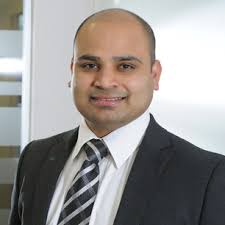
Dr Krishna Balthu is a Lecturer in Operations Management at Aston Business School. He worked as a consultant and change manager in knowledge-intensive organisations for over ten years prior to teaching at Aston. He delivered an award-winning research project funded by Innovate UK. Krishna’s research is focused on how systems thinking can be applied to achieve sustainable and effective change in organisations. Krishna’s work was published in top-ranked journals such as International Journal of Operations and Production Management among others. His work in the field of legal service innovation was recognised through awards, published magazine articles, and invited talks at various forums such as Innovate UK, The Lawyer, ILTA and European Foundation for Management Development. Krishna is committed to advancing the field of systems thinking through his research and teaching, and he is passionate about sharing his insights with others in the field.
Czesław Mesjasz: Complex systems management and the traps of sustainability and corporate sustainability as polysemic notions.
Sustainability, referring to various levels of societal hierarchy, has become one of contemporary social theory and practice’s most popular and influential terms. It has also become one of the crucial issues in modern management. However, the multitude of meanings of sustainability may doubt its application’s validity. Economic, environmental, and social domains cover all areas of corporate activities. Additionally, sustainability is a value-laden term, a universal good.
Under such circumstances, the research on sustainability demands a sound conceptual
background. The paper aims to show how selected methods of complex systems studies
describing the relations between a system and its environment can help order the research on corporate sustainability when sustainability is a polysemous normative term. The environmental aspects of corporate sustainability will be treated as the core issue. The following problems will be primarily discussed: 1) Company’s strive for environmental sustainability and the universal meaning of environmental sustainability. 2) A more detailed interpretation of the idea: Think globally, act locally”, will be presented 3) How company as an actor can learn about the causes and consequences of its pro-environment management for global/regional/local
Challenges?
About Czesław Mesjas:
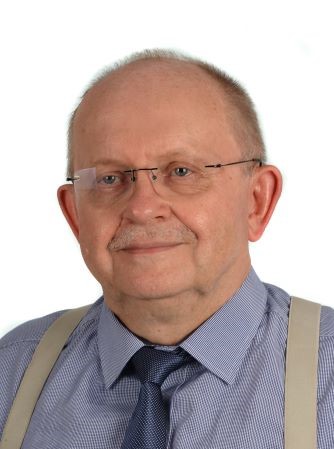
MSc. – Physics, MA – Organisation and Management, Ph. D. – Management,
Habilitation – Management. Current position: Associate Professor, Cracow University of Economics, Kraków, Poland.
Research interests: management theory, conflict, and negotiation, corporate governance, project management, systems thinking, and complexity studies – selected applications in social sciences. Author of about 300 publications in Polish and English. Some of them were translated into Chinese, Turkish, and Danish. International professional organisations: Academy of Management, International Studies Association (ISA), International Sociological Association – Research Committee RC 51, (Sociocybernetics), Member of the Board of Arbeitsgruppe Friedensforschung und Europäische Sicherheitspolitik – Peace Research and European Security Studies.
(AFES-PRESS), Mosbach, Germany. Co-operation with the Millennium Project of the
American Council for the United Nations University – participant in questionnaire
studies since 1998 (Results published in the “State of the Future Report”). Research
and teaching visits in Denmark, Finland, France, Germany, The Netherlands, Norway,
Portugal, Serbia, Sweden, United Kingdom, USA.
Benjamin Taylor: The Viable System Model and Human System Dynamics through the lens of Barry Oshry’s Organic Systems Model.
The VSM is undoubtedly about people in organisation, at heart, and I consider it to represent some of the most essential, fundamental aspects of organisation. But not all. Long before I encountered Beer’s work, I was engaged in studying Barry Oshry’s power+systems framework, now called the organic systems model. Developed from extended observation of experiential workshops, this framework identifies sensemaking ‘worlds’ – Top, Middle, Bottom, Customer, Helper, Dominant, Other – ‘real’ conditions which seem to inevitably pertain in different relationships to responsibility, authority, and decision-making – and instinctive human responses to those conditions, which both exacerbate the conditions and create problematic human dynamics within and between the worlds which persistently shift people out of partnership – a shared focus on what we collectively value.
While each of these spaces has an instinctive response which is organisationally and humanly problematic, other responses which maintain a focus on partnership through an awareness of the ‘worlds’ and the dynamics of responsibility, authority, and decision-making, are possible. Being in organisation in ways which are not ‘blind’ to these dynamics raises interesting parallels with, and potentially challenges to, the VSM as we may see it. What’s more, using the same logic for the inherent patterns of Dominant/Other in human cultures (small and large), Oshry identifies the need to develop practices which dynamically explore system possibilities of power and love – differentiation and homogenisation of the whole, individuation and integration of the parts. This raises interesting potential parallels with the viable systems balances of adaptation and stability of the whole, and autonomy and integration of the parts.
I will explain and explore these dynamics.
About Ben Taylor:
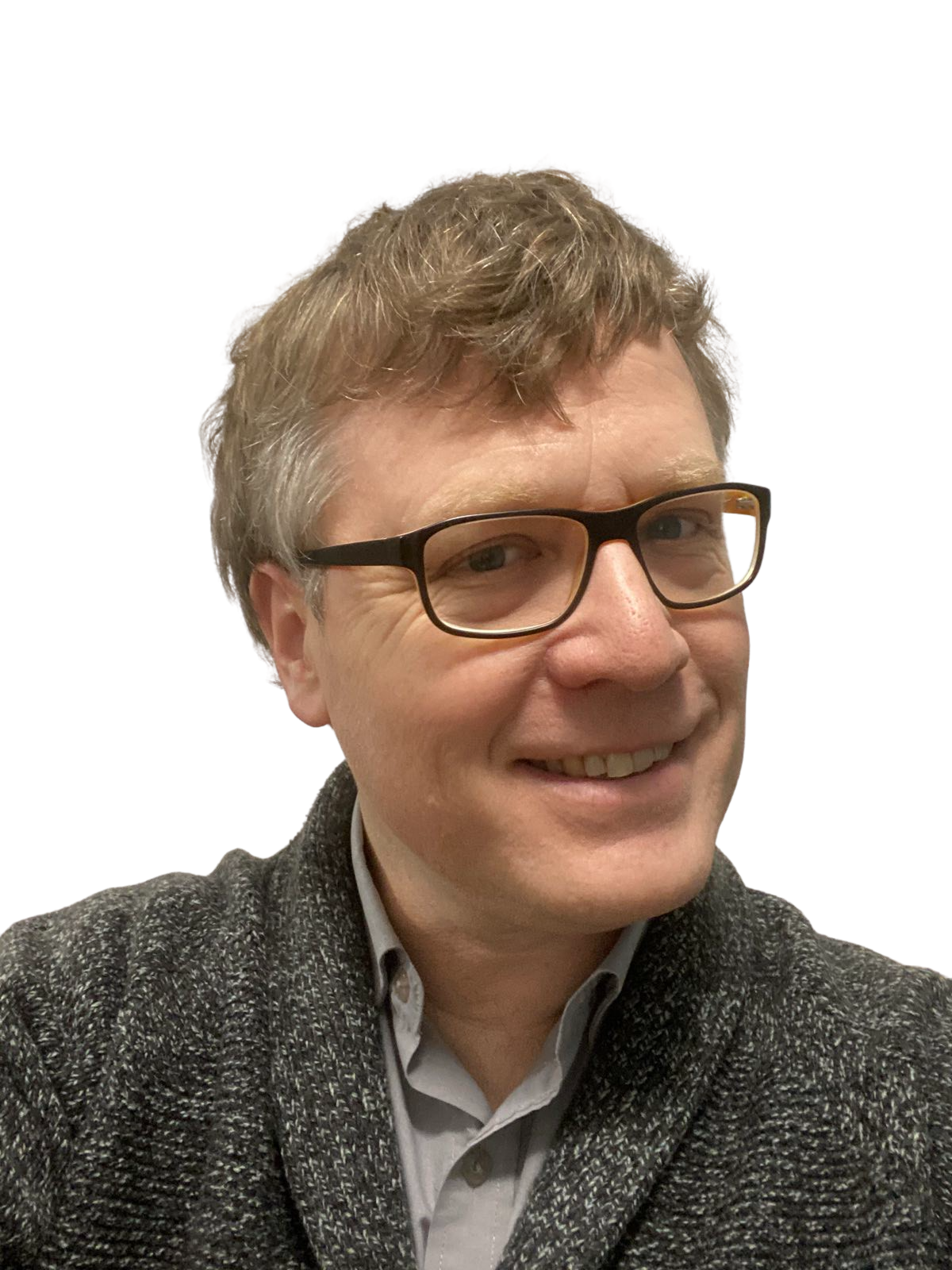
Benjamin is a business evolutionary and avid leader fascinated by systems | cybernetics | complexity and (public) service transformation. The purpose is better experiences of organisations for people and employees, and better outcomes from public services for citizens and communities.
He takes ethics seriously and tries to make the work of change fun – and there’s not much that’s more fun than a great insight.
Benjamin runs RedQuadrant, a network consultancy in the UK, and shares and teaches on his favourite topics widely, including the international small-group RedQuadrant tool shed.
He is a Director of Systems and Complexity in Organisation, the systems practitioner professional body, a Fellow of the Cybernetics Society, and *still* writing two books on systems thinking and public service transformation. He hosts the Systems Community of Inquiry blog and convenes and support various systems communities of practices, and is Chief Executive of the Public Service Transformation Academy.
He has also lectured in applied systems thinking at Cass Business School, City University, and at Nottingham Business School and Oxford Said/HEC Paris.
@antlerboy
Links at www.bentaylor.com
www.linkedin.com/in/antlerboy
Systems community of inquiry www.syscoi.com
benjamin.taylor@redquadrant.com
+44(0)7931317230
Julie Mackie: Viability and sustainable approach in action: learning from a work-based project to kick-start the design of an anchor institution strategic framework for an NHS trust operating as part of a new anchor network.
A growing number of advocates see the power of anchor institutions working together in networks as one of the routes supporting economic recovery and progressive reform (CLES, 2019). In Gloucestershire, the Director of Public Health has called to action public sector organisations to enhance the potential of Anchor Institutions through establishing a collaborative network, coordinating activity, and develop organisation strategic plans (GCC, 2021).
This presentation explores a work-based project implementation of the Viable and Sustainable (V&S) approach to initiate the development of an NHS Trust’s first Anchor Institution strategic framework as it establishes a role within a newly formed Countywide Anchor Network. Using the Self-Transformation Methodology as a guide, V&S conceptual modelling allowed the anchor network to be viewed as a viable organisation to diagnose organisational pathology and identify recommendations that arguably could be both replicated and amplified through the network. Initial analysis suggested that poor cohesion, lack of communication channels and a lack of structures performing essential development and management functions are key pathologies that limit and present barriers to anchor viability.
This presentation explores some of the challenges of representing a hyper complex network of anchor institutions as a viable organisation and acknowledges that in doing so in the project, represents a shift in the traditional application of Beer’s VSM and a profound simplification of a hyper complex network.
Luis Armando Vásquez-Ruiz, Juan E. Núñez-Ríos and Pedro Pablo Cardoso: Exploring the Viable System Model as an alternative to foster sustainable change.
Exploring the Viable System Model as an Alternative to Foster Sustainable Change Luis Armando Vásquez-Ruiz, 1 Juan E. Núñez-Ríos, 2 Pedro Pablo Cardoso-Castro 3 1,2 Universidad Panamericana. Facultad de Ciencias Económicas y Empresariales. Álvaro del Portillo 49, Zapopan, Jalisco, 45010, México. 3 Cranfield University, Cranfield Defence and Security, College Rd. Wharley End, Bedford MK43, United Kingdom.
In addition to representing a health crisis, COVID-19 also represented a crisis for management and organizational design models that usually leave the human factor and the search for sustainability in the background. Given this, Small and Medium-Sized Enterprises (SMEs) in the Mexican industrial sector are under pressure in core operations such as sales and marketing, the deployment of which is crucial as it constitutes one of the main inputs for their permanence. However, SMEs continue to employ an organizational model that confers little autonomy to those involved in this process. In this regard, our work explores the Viable System Model (VSM) as an alternative to generate sustainable operations and increase the performance a sales-marketing department. For this purpose, the following has been done: 1) Using Social Network Analysis (SNA), the literature was analyzed to identify the use of the VSM in the sales closing problem, 2) The VSM is used to diagnose a unit in a Mexican SME dedicated to industrial sales, 3) An organizational structure based on the VSM is proposed to serve as a guide to improve the sales closing process. We consider that the adoption of the VSM can lead managers to reflect on their processes and support the transition from a reductionist approach to one focused on sustainability.
About Luis Armando Vásquez-Ruiz:
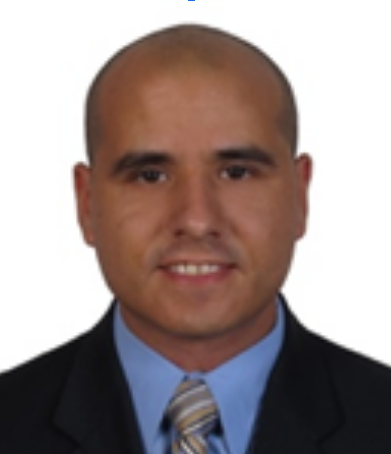
Luis Armando Vásquez-Ruiz is an Industrial Engineer and is currently pursuing his PhD in Business Administration at Universidad Panamericana (Mex). He has more than 18 years of experience in the field of industrial sales, service sales, and retail. He is also a member of the advisory board of the North American Association of Sales Engineers and participates as a volunteer in other social welfare councils. His research focuses on topics related to technical sales processes, systems thinking, and supply chain ethics.
About Juan E. Núñez-Ríos
Juan E. Núñez-Ríos holds a PhD in Systems Engineering from Escuela Superior de Ingeniería Mecánica y Eléctrica, IPN (Mex). He also holds an international certification as a Black Belt in Six Sigma. He is a full- time lecturer and researcher at Universidad Panamericana, Guadalajara (Mex). His research interests are related to to organizational, managerial, and sustainability problems combining Soft Systems Methodology, Viable System Model, Network Analysis and Structural Equation Modeling.
About Pedro Pablo Cardoso-Castro:
Pedro Pablo Cardoso-Castro obtained his PhD in 2010 at the University of Hull. He is now Senior Lecturer at Cranfield University. Pedro Pablo has done research in the use of complexity in Management, focusing on applying Organizational cybernetics in fields such as Strategy, Security, Sustainability, (social) Innovation, and the study and development of Management Systems tools inspired in Co-evolving and Transition Management principles. His most recent projects in different fields were in the UK, Ukraine, Belarus, Poland, Lithuania, Latvia, Colombia, Brazil and Mexico.
E.B. Bassam & Jose Carlos Mariategui: Introduction and screening of ‘Cybersyn 1973/2023′.
Jose-Carlos Mariategui will introduce ‘Cybersyn 1973 / 2023’ a 15 min 33 sec animated video that delves into the question: How might one re-envision the historical Cybersyn in the context of our hyper-financialized era? Project Cybersyn, a bold attempt to implement a networked socialist economy, was embraced by Salvador Allende’s short-lived Chilean government (1970 – 1973) and developed in collaboration with British cybernetician Stafford Beer. Over the past decade, Project Cybersyn has emerged as a recurring reference and exemplary model from history in the discourse surrounding the repurposing of dominant technological infrastructures to facilitate equitable economic and social practices.
The emblematic image of Project Cybersyn’s control room, with its futuristic aesthetic, symbolises a technical artifact representing negotiation and democratic decision-making. This evocative image serves as the foundation for the video, suggesting that aspirations for post-scarcity and post-capitalist economies must engage with the transformations in political, economic, and technological landscapes since the time of Project Cybersyn. Consequently, the control room image itself transforms into a platform for alien mutations, philosophical speculations, and social commitments.
To reimagine the historical Cybersyn for our contemporary hyper-financialized era, curator and researcher Bassam El Baroni (Aalto University, Finland) joined forces with transdisciplinary architect Constantinos Miltiadis (Aalto University, Finland), multidisciplinary artist and animator Georgios Cherouvim, and composer and sound artist Gerriet K. Sharma. This collaboration culminated in the formation of a temporary working group, ‘Grupo Synco’, which co-created the video work. The work was first shown as a 5-channel video and sound installation in 2021 at the group exhibition ‘Infrahauntologies’ curated by Bassam El Baroni and held at the Edith-Russ Haus for Media Art in Oldenburg, Germany.
Trailer: https://vimeo.com/572121732
Full Video: https://vimeo.com/572121732
About Bassam El Baroni:
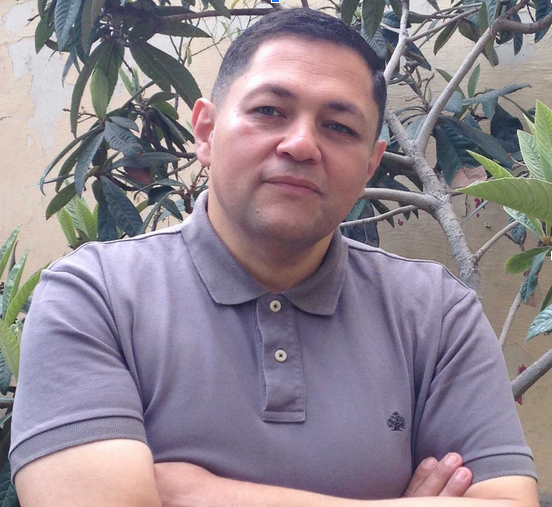
Bassam El Baroni is associate professor of curating and art mediation at the School of Arts, Design and Architecture, Aalto University. Formerly, he lectured at the Dutch Art Institute, ArtEZ University of the Arts, Arnhem (2013 – 2019) and was artistic director of the now folded non-profit art space ACAF – Alexandria Contemporary Arts Forum in Alexandria, Egypt (2005 – 2012). His most recent research engages with issues such as financialization in relation to artistic practices, AI and curating, artists’ engagement with infrastructural futures and histories, and new forms of artist-led activism.
Marc Pearson & Kerry Turner: Campfires and cave drawings.
We believe in the usefulness of models. Models are at their best tools. We are at our best toolmakers for others’ hands. We see too little support for local civic activists at the very local scale the scale where we see most of life being lived.
We think that civic associations and local businesses are being decimated by the growth and dominance of supra-regional institutions–especially publicly traded corporations and remote governments. We think that Stafford Beer advanced a profound understanding of the functioning and viability of human institutions. We hope that experts who understand Beer’s insights and who up to now have mainly supported large institutions will devote an equal effort toward small institutions, particularly local associations and business.
We hope that some of you or some of your acquaintances will join us in a tool translation enterprise.
Further, we believe that there is not enough time for a haphazard approach to societal change. We believe that current knowledge and wisdom must be formulated and archived in ways that can be used and improved upon by interested folk across the world. We have begun to build an adaptable open source approach to such knowledge accumulation and sharing that is designed for adaptation to local circumstances. (Patterns and Pattern Languages).
Many specialist tools and methods need translating into vernacular forms.
To the extent that we fail, oversized and out-of-balance businesses and governments will continue destroying the quality of life most people seek. Vester’s nine methods and tools are an inspirational example of a pattern language or a system of patterns for approaching complex social problems. That approach (interconnected thinking) is what we are attempting to extend and vernacuralize. We believe that there are reliable patterns of models and patterns of usage. These patterns assist in re-organizing local economies including home economies. We have an expanding set of models that we are vernacularizing for local civil society usage. We are looking for help. This is volunteer work gifts to our neighbours and children.
THE WORKSHOP
There will be several brief hands-on exercises at your table–reminiscent of childhood coloring books. We will provide only enough explanation and encouragement to get you started and each will then end too soon. (Frustratingly or mercifully soon!)
We will provide online copies and explanations for anyone’s use before the live session.
Our goal for the live session is for each participant to get their hands dirty, to play with each model or exercise a little. Enough to remember it and its feel. We are not presenting ourselves as experts and we are not expecting anyone to become expert during this session.
We do hope that you get a feeling for the possibilities of using sets of interlinked vernacular modelling tools.
We do hope that you see the possibility for further shaping these tools for common usage.
The on-line platform that we are using and developing is the Federated Wiki. We hope you become intrigued with the potential of the FedWiki as we have.
See ReLocalize Creativity: (https://relocalizecreativity.net/view/welcome- visitors/view/relocalize-creativity-explained) for an overview of our work.
On-line version of the workshop: https://metapho.relocalizecreativity.net/view/index/view/intro
Juliana Alves, Jon Walker, Peter Tuddehman, John Waters, Pedro Pablo Cardoso & Angela Espinosa: Viability and sustainable water management.
The aim of this workshop is to delve into the critical role of viable and sustainable water management, with a particular emphasis on fostering community practice. To kick off proceedings, we will take a broad view of water systems, examining how they interconnect on a global and local level. Participants will be invited to consider how autonomous viable systems are imperative for managing the complexity of water resources across different levels of recursion. Drawing upon Colombia’s Magdalena River and Brazil’s Formoso River as case studies, this workshop aims to explore some of the gaps in the water debate, such as the interplay between poverty reduction, public governance, and constitutional structures, as well as the challenges of multi-level governance in water policy. Moreover, the workshop will provide a forum for participants to cultivate a community of practice centred around sustainable water management (VCC?). Through undertaking a design challenge that involves numerous sensors, algedonic generation, and community response, attendees will work collaboratively to craft solutions for water management at the community level. We will explore how to measure what is essential, generate algedonics, and communicate the signal. Additionally, we will analyse who is responsible for taking action, who decides which action to take, who determines if the problem has been solved, and what kind of alarms the signal should trigger. Through sharing their experiences and perspectives, and working hand in hand, participants will acquire a richer comprehension of how to put into practice sustainable water management principles and develop community-level solutions.
About Juliana Alves:
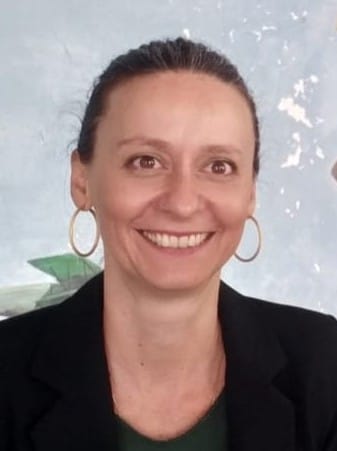
Juliana comes from Tocantins, the youngest state of Brazil. It is home to the largest water household in the country – the Tocantins-Araguaia Basin. This background has shaped her professional career.
Throughout her career, she actively coordinated rural development projects and promoted governance of common resources in Northern Brazil. Additionally, she has provided assistance to communities affected by large hydroelectric projects in the energy sector.
Her extensive experience has provided her with a deep understanding of the practical aspects of water management, specifically at the intersections of energy and food systems. As a consultant to the Brazilian Ministry of the Environment, she feels honoured to have contributed her expertise to the development of decentralized systems of organization and management, particularly in the context of policies for small-scale farmers.
In 2019/20 she had the opportunity to enhance her knowledge and gain international experience as a visiting researcher at the Institute of Management & Strategy of the University of St. Gallen, Switzerland. During her research, she focused on her doctoral dissertation, applying the VSM to water governance.
This practical application of the VSM has enabled her to open a powerful new approach of coping with the complex challenges in water management.
Her focus is on sustainable water use. She is deeply committed to advancing water management policies and practices for the utilization of water – the essential resource for people and the environment.
Martin Pffifner, Angus Jenkinson, Jose Perez Rios, Steve Brewis, Jon Walker & Angela Espinosa. VSM application insights and questions from our VSM application research group (Metaphorum and CybSoc members).
This presentation follows months of work by a special interest group of the Cybernetics Society with Metaphorum. We examined service or support units (such as finance and marketing) in the viability of the whole. This clarified major principles for modelling and diagnostics. They offer skill sets required to achieve goals needed by the company and are funded for these purposes. Their contributions to S1-S5 should be included in models. This leads to key distinctions such as virtual, process, and physical structures in the conception of structure and organization. Every person, and every kind of grouping in a vibrant company contributes to the coherent viability of the whole.
Expected Outcome:
As an outcome of the workshop we expect shared insights into practical application questions such as “How can I show the finance department in the VSM?” or “Can I apply the VSM to HR even if that is not perceived a System 1?”.
John Waters: Applying some cybernetic concepts to planetary viability – a skeleton on which to build.
A collective change of awareness and perception, even if achievable in some measure at an organizational or policy-making level, may be more challenging at a human scale. The diversity in natural languages and cultural assumptions creates barriers even between the most well-educated and well-resourced. Trapped in bubbles of misinformation, the majority may have good reason to doubt both the intentions and the competence of those in authority. The diversity of approaches developed over many generations to maintain the viability of each community within its distinct environments is currently threatened rather than strengthened by globalization, but that need not be the case. Despite the constraints imposed upon the language and assumptions of the disadvantaged majority, a minimal shared understanding may be sufficient to restore longer-term viability for the planet. A culturally-neutral reference vector may be sufficient to supports construction of arbitrary, recursively nested error signals, each created through arguments constructed within a cultural “black box”, each independent of language or conditioning.
An approach to managing arbitrarily large collections of resource bargains, offering carrots in place of sticks, encouraging and facilitating co-operation rather than coercion, may be achievable more easily than widely assumed, offering the potential to build a planetary network of “compassionate neurons” on which an entirely new concept of an economy can be built – one which does not violate the Conant-Ashby Theorem. Some foundational concepts will be introduced along with a proposal for a novel approach to the construction of a very low cost “skeleton” upon which viable units, at any scale from human to planetary, may be built – along with a all necessary signalling channels. Following this, we shall explore together how such an approach may be use to collect, aggregate, filter, share and visualize information about impacts, the creation of decision-informing feedbacks, algedonics and steering triangulations.
About John Waters:
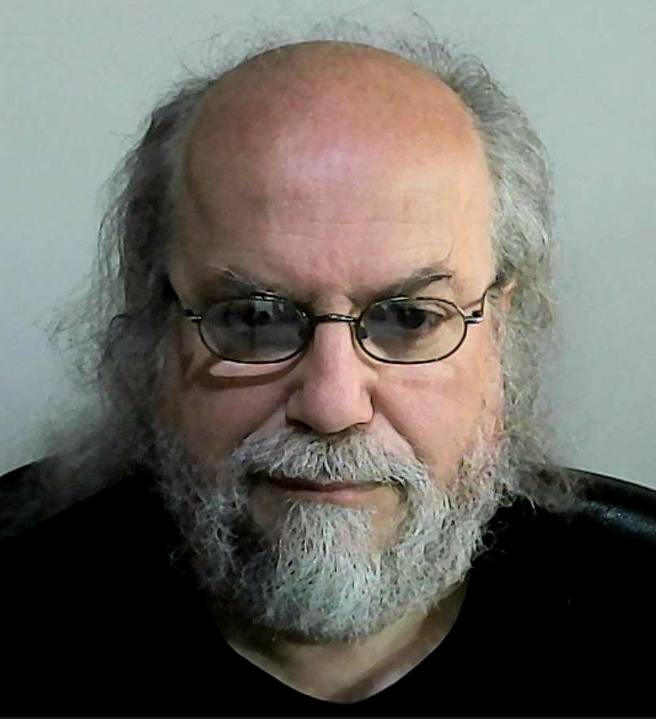
After studying engineering at university, John spent a few years designing and developing communications equipment, data loggers and other instrumentation, but life in a laboratory can only sustain one for so long. Abandoning this relative security for an enlightening series of explorations within and among various co-operative enterprises, he soon found a stimulating niche in community economics, collaborating on feasibility studies and seeking alternatives to the status quo, and spending decades contemplating different approaches to the matching of resources to needs in way more compatible with the viability of both people and the planet. Along this rocky path, he was sustained by a combination of eudemony and serendipity, nourished by autodidactic explorations and the application of diverse systems concepts. He is currently exploring (with colleagues) ideas around structures for distribution of high-capacity, decision-informing signals, contributive economics and much else.
When pressed for a label, he generally prefers humble newt farmer.
Gary Alexander: A new common sense or VSM for all.
Emancipation, freeing ourselves, turns out to be a key to the kind of social transformation that will enable humanity to handle our existential crises: climate change, wars and ethnic cleansing, etc. Thomas Paine’s Common Sense, called for a change from hereditary rulers to representative democracy. Our proposed, “new common sense” is a call for bottom up self-rule, which basically means no one tells anyone else what to do. People collaborate voluntarily. This was the predominant social pattern before civilisation, and a major spur to human emotional evolution.
The kind of social structure required for such a society needs to be some variety of Beer’s Viable Systems. I will describe what that means at the community level, building upon recent initiatives in my home town in Norfolk. One major issue with viable systems is how to explain it to lay people who don’t have a systems theory background or experience. I will explain how we did this in Norfolk, and what the reception was.
In the workshop part of my offering, I will engage the audience to explore how well my approach succeeds in expressing VSM principles and what is left out. For that part I plan to use the Fishbowl methodology in which a continuously changing small group discusses the issue. I will talk for about 15 minutes and expect the workshop part to continue for another 45 minutes. No limit to the number of participants, or special equipment is needed.
About Gary Alexander:
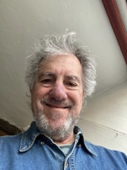
Dr Gary Alexander: Gary retired after 37 years at the UK’s Open University, where he was at times, the Director of the Energy Research Group, Director of the Electronic Media in Education Research Group, a pioneer in developing online courses using collaborative learning techniques, an author of many courses on environment and electronics.
His most recent community project was a Green Fair on Fair Green where he lives, at which he gave a talk about sustainable living that included a version of the VSM that would be clear to a layperson. He has been involved in many other community projects, including setting up the Diss Community Farm, was active in the Transition Network and was on its Board of Trustees for 4 years. See his earthconnected.net website for more information, including copies of his books, papers and conference contributions over many years. He has developed detailed visions of a collaborative, sustainable future, especially in his book, “”eGaia, Growing a peaceful, sustainable Earth through communication”.
About Ian Kendrick:
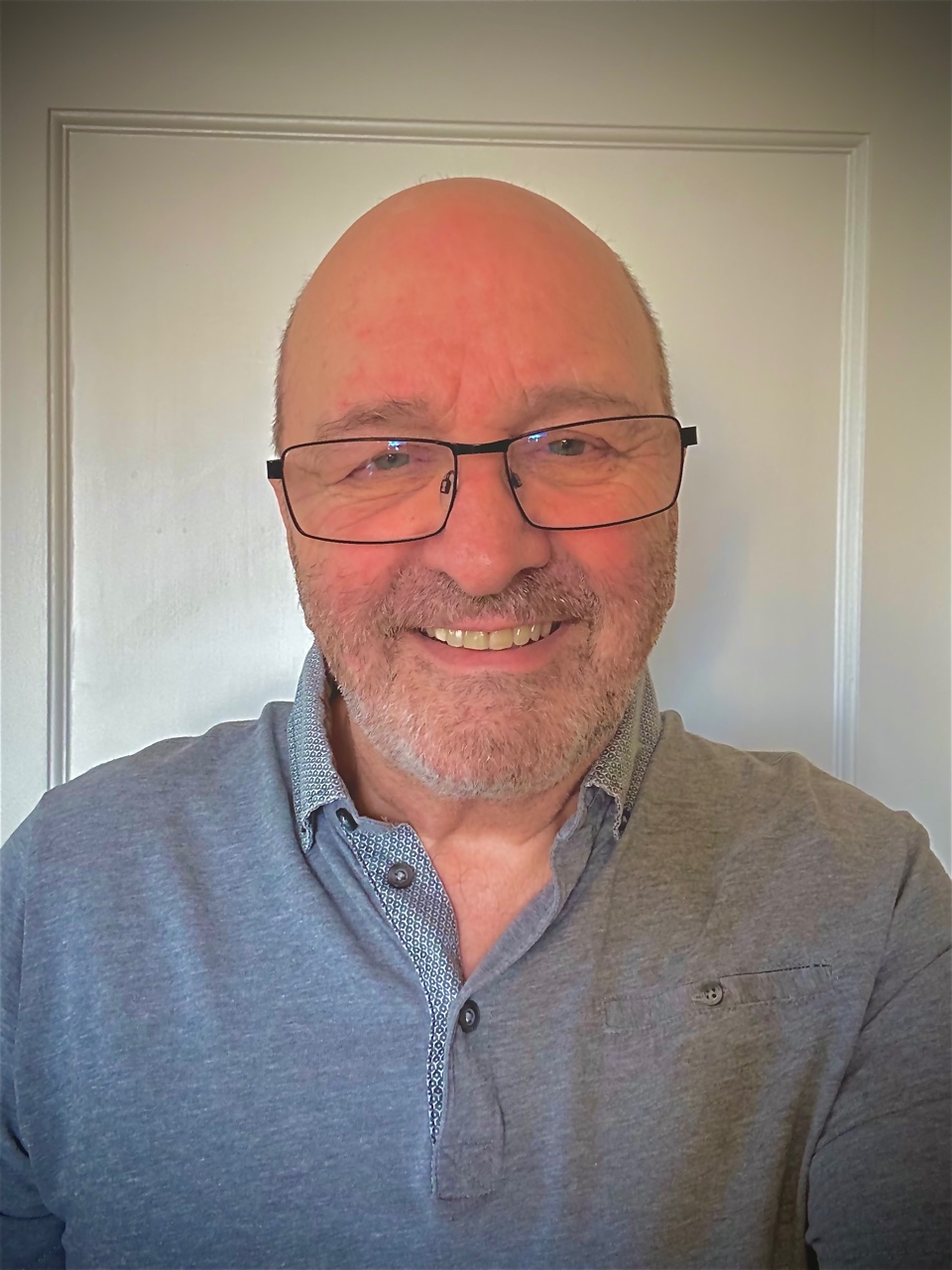
Ian specialises in facilitating teams to develop, communicate and deliver strategic innovation from inception to growth in turbulent environments. Working with NGOs and commercial organisations, he engages with ethos cohered communities looking to achieve systemic transformation in their environment and in themselves. This work brings the ability to reperceive situations afresh to enable transformation and continuous adaptation.
Ian uses approaches that are cybernetic and systemic, engage with complexity and bring different perspectives to bear on the matter in hand. These approaches include the VSM, Syntegration, futures thinking including Three Horizons, discontinuous, disruptive and transformative innovation, decision making and narrative creation.
He led a major research project exploring the emergence and agency of online communities and their potential to address the needed variety to address major societal issues and esential change. This work forms the foundation for Ian’s work with many online communities, helping them to form, connect, cohere and amplify their work together.
He has held senior positions in small and large organisations and facilitated many through difficult periods of transition as CEO. He has worked in cross cultural appreciation and local communities. Ian is a fellow of the Royal Society for the Arts, co-founder of H3Uni and a Samaritan in the UK.
About Julie Mackie:
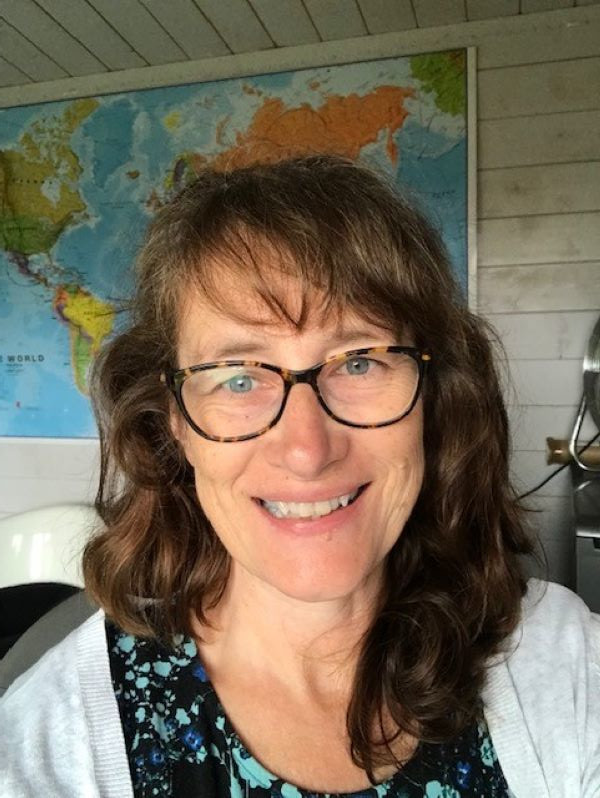
Julie Mackie is Head of Partnerships at Gloucestershire Health and Care NHS
Foundation Trust. She has over 28 years post qualification experience as an Occupational Therapist practicing predominantly in mental health services and specialising in eating disorders, working in London and Gloucestershire for several NHS and independent health sector organisations. For the last 6 years she has used her clinical and leadership experiences to support the development and delivery of transformation agendas for her organisation, and the wider One Gloucestershire Integrated Care System. She leads a small team that ensures people with lived experience and colleagues delivering services are involved in their collective endeavours to reduce health inequalities, improve care quality, and increase collaborative and sustainable ways of delivering health and care for the population we serve. She is currently in her second year of the Systems Thinking Practitioner level 7 apprenticeship and MSc with Exeter University.
